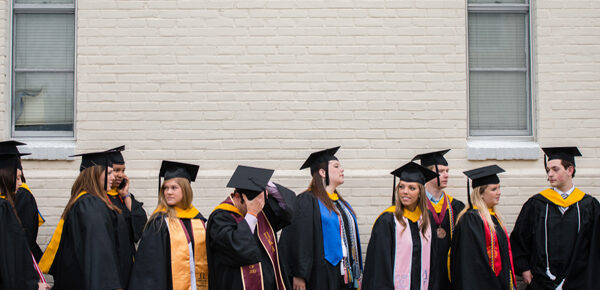Former ACE General Counsel Ada Meloy on the dueling bills in the House and Senate intended to curb frivolous lawsuits filed by patent trolls.
The ability of our universities to continue generating important discoveries and innovations in areas such as health and technology, research that often leads to life-saving inventions such as new drugs or groundbreaking ways to cultivate arid soil in developing countries, may rest on the outcome of a legislative battle now in Congress.
Legal counsel for institutions nationwide should keep a close eye on dueling bills in the House and Senate intended to curb frivolous lawsuits filed by “patent trolls,” the colloquial term often used to refer to “patent assertion entities” (PAEs).
These PAEs acquire patents for the sole purpose of extorting payments from legitimate businesses and other end users of an invention. The trolls will claim that the businesses are infringing on some aspect of the patent they hold through uses of products a business has purchased legally and in good faith. Many retail companies, particularly smaller businesses, will settle rather than risk expensive litigation, even if they know they are being scammed.
Lawmakers are properly moving to stem the tide of patent trolls filing such frivolous claims. But in the process, a House bill, the Innovation Act (H.R. 3309), may unintentionally hamper the process of transmitting the basic research done by so many of our institutions from the university to the marketplace.
Approved by the full House last fall, H.R. 3309 is worded more broadly than what is required to crack down on trolls and their frivolous lawsuits, and actually threatens to undermine the overall patent system and diminish institutions’ capacity for sharing results of innovative research.
One of the main problems with the House bill is that it would make patent holders potentially liable for expensive court costs and attorney fees for the other side if they lose a case. In addition, the bill says that “interested parties,” such as a university whose research is connected to a disputed patent, could be brought into a case it otherwise isn’t involved with and be required to cover any legal costs the losing party cannot afford to pay.
It is important to remember that universities conduct about 60 percent of the basic research done in this country, much of it using federal funds. And because universities make discoveries but not commercial products, they must be able to transfer inventions resulting from their research to the commercial sector for development and use in society. That is why patents play such a key role in what we call university technology transfer.
But because universities typically don’t have large litigation budgets, these provisions could make them think twice before risking getting involved in a lawsuit—and fear the consequences of being dragged into one not of their own making. It also could hinder many investors and companies from commercializing the innovations created by research institutions. That threatens the very essence of how research universities contribute intellectual capital to spur both valuable creations and the entire U.S. economy to new heights.
Fortunately, a bipartisan Senate bill (S 1720) addresses the need to crack down on patent trolls without actually making it more difficult for patent holders to defend their rights, as the House bill does. However, the Senate Judiciary Committee has yet to approve the bill and move it forward. One point of contention is how to ensure that court fees are assigned to the losing party in a patent troll lawsuit in a reasonable manner that doesn’t discourage potential plaintiffs from even attempting to pursue a case. (There also are alternative Senate measures, some of which have the same flaws as the House bill.)
In a statement in December, ACE and five other higher education associations noted our support for S 1720 and the problems identified with the House measure, saying that, “It is critical that legislation addressing patent litigation balance the value of protection from abusive litigation practices against the need to preserve the strength of patents to foster innovation.”
The challenge for our universities is to demonstrate to policy makers and legislators why it is so crucial to craft legislation that targets the practices of patent trolls but doesn’t derail the ability of our institutions and other legitimate patent holders to fairly enforce their patent rights. They must not pass a bill that devastates what has been for decades a successful and thriving system of experimentation and innovation in this country.
If you have any questions or comments about this blog post, please contact us.


